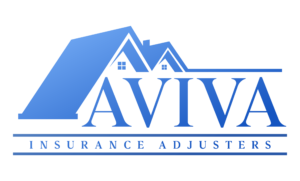Facing the aftermath of a fire can be daunting. A fire damage consultation is a crucial step towards restoration, providing you with a clear path to recovery. But knowing what to ask during this consultation can make all the difference. In this guide, we’ll explore the key questions you need to ask to ensure a smooth and efficient restoration process.
What Are the First Steps in the Restoration Process?
Understanding the initial steps helps set expectations and ensures you are prepared for the process ahead. This includes assessing the damage, securing the property, and establishing a restoration timeline.
Before anything else, your consultant will likely start with an assessment of the fire damage. This involves a detailed examination of the affected areas to determine the extent of the damage. It’s during this phase that they will identify which areas need immediate attention and which can wait until later in the process.
Next, the focus shifts to securing the property. This includes boarding up windows, installing tarps on damaged roofs, and ensuring there are no immediate safety hazards. At this time, a timeline for the restoration process is established. Having a clear plan will help set your expectations and make the entire journey smoother.
How Long Will the Restoration Take?
Every fire situation is unique, and timelines may vary. Ask for an estimated duration to help with planning and to get a sense of urgency required for specific tasks.
Some factors that can influence the timeline include the size of the affected area, the extent of the damage, and the availability of materials. Be sure to also ask about any potential delays due to weather or other outside influences.
Communication is key during this process. Regular updates from your consultant will help you stay informed about progress and any shifts in the planned timeline. Establishing a good line of communication early on can alleviate stress and keep you aware of what’s happening.
What Are the Costs Involved, and What Does Insurance Cover?
Clarifying costs upfront can prevent surprises later. Discuss with the consultant what will be covered by insurance and what might require out-of-pocket expenses.
Your insurance policy may cover the majority of the restoration costs, but there could be specific exclusions or limits. Review your policy closely and ask for a detailed breakdown of what is covered. Knowing your financial responsibility from the start can prevent unexpected expenses.
If you are unsure about your insurance options, consider consulting with professionals who have expertise in insurance claims, like Aviva Insurance Adjusters, to help navigate the complex details.
Are There Any Health or Safety Concerns?
It’s crucial to know about any potential health risks from smoke or soot and whether staying in your home during restoration is safe.
Fire damage often leaves behind not just visible destruction but also invisible threats, like lingering smoke particles and toxic fumes. Ask your consultant about air quality testing and remediation. Understanding these risks is important for making decisions about temporary relocation.
Will Personal Belongings Be Restored or Replaced?
Determine what can be salvaged and what might need to be replaced. This helps in managing expectations and making informed decisions about your belongings.
Consult professionals on the possibility of restoring sentimental items. Techniques like dry cleaning and ozone treatment might save things you thought were lost.
It’s equally important to discuss the logistics involved in storing items that are removed for restoration. Find out whether you need to arrange for storage or if it’s part of the service provided.
Final Thoughts on Your Fire Damage Consultation
By knowing the right questions to ask during your fire damage consultation, you’ll be better equipped to handle the aftermath of a fire with confidence and clarity. Your proactive approach can help ensure that your recovery process is smooth, effective, and as stress-free as possible.


